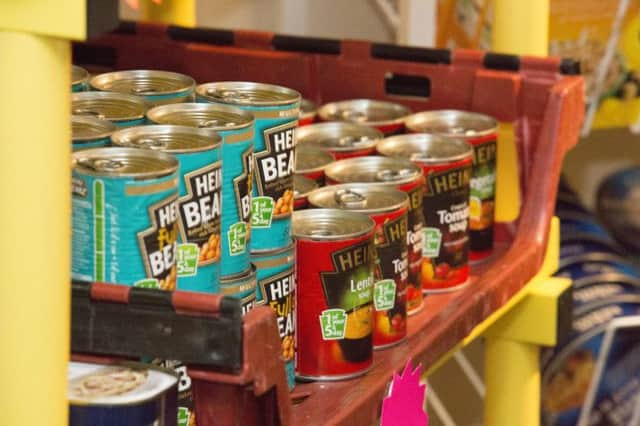Food bank surge a sign of our stark inequality
This article contains affiliate links. We may earn a small commission on items purchased through this article, but that does not affect our editorial judgement.


Imagine if, without warning, your employer suddenly cut your pay for a month because they wrongly thought you had arrived late.
It is the sort of disproportionate response faced by all too many people under the current sanctions regime – one of the causes for the surge in the number of people unable to feed themselves.
Advertisement
Hide AdAdvertisement
Hide AdOxfam, along with Church Action on Poverty and the Trussell Trust, has launched a new report called “Below the Breadline” outlining the huge and growing number of people using food banks.
It shows UK-wide more than 20 million meals were given out by the three main food aid providers during 2013-14; with many outlets run by other providers the total figure will be higher still.
The report’s launch coincided with last night’s hard-hitting Dispatches programme Breadline Kids on Channel 4 which highlighted the impact of the food poverty crisis on children in Britain.
It comes amid a dramatic rise in food bank use here in Scotland; the Trussell Trust alone saw a five-fold increase in users in the last year – it handed out 639,000 meals across the country.
Among those who received support were more than 22,000 children.
The “Below the Breadline” report details some of the causes for this rapid increase.
It points towards the recent raft of changes to the welfare system, including benefit sanctions, as well as low and stagnant wages, insecure and zero-hours contracts and rising food and energy prices.
Last week, the Scottish Parliament’s welfare reform committee said the UK government’s welfare reforms are a “significant cause” for increasing numbers of people needing food support.
Advertisement
Hide AdAdvertisement
Hide AdWe believe this raises big questions as to whether the UK government is doing enough to fulfil its responsibility under article 25 of the United Nations Universal Declaration of Human Rights.
This says that everyone has the right to a standard of living adequate for the health and well-being of themselves and their family – including food, clothing, housing and medical care.
Crucially, people have a right to these things regardless of unemployment, sickness or disability.
Yet, many of those using food banks cite sanctions as the reason for doing so.
Recently released figures by the Department for Work and Pensions showed that in a period of just over a year more than 100,000 sanctions were imposed in Scotland.
A sanction is put in place when a claimant is deemed not to have followed certain rules, such as attending regular appointments.
However, the sheer number now being imposed raises serious questions about their fairness and validity with almost half of all sanctions reviewed across the UK found to have been applied wrongly.
In this context, we believe all political parties should commit to re-instating the safety net principle as a core purpose of the social security system – right now, it is falling short in too many cases.
Advertisement
Hide AdAdvertisement
Hide AdBut many people who visit food banks are in work; their wages simply aren’t enough to ensure they can support themselves and their family amid rising costs for things like food and energy.
That’s why we believe all political parties should commit to increasing the minimum wage to the Living Wage by 2020 and, crucially, set out their strategy for achieving this.
Alongside this, the STUC estimates there could be 85,000 people on zero-hour contracts in Scotland, creating huge uncertainty as to the level and timing of income.
We need a sector-by-sector review of the use of such contracts, and their impact.
The surge in food bank use is the starkest symbol of the deep inequality within our society.
Across the UK, just five families are wealthier than the poorest 20 per cent of people put together.
Recent Scottish Government research revealed the richest 10 per cent of households are 900 times wealthier than the poorest 10 per cent of households.
The reasons for the surge in food bank use may be many and varied but, in our wealthy country, it is simply unacceptable for so many people not to be able to afford to eat.
• Jamie Livingstone is Head of Oxfam Scotland
SEE ALSO